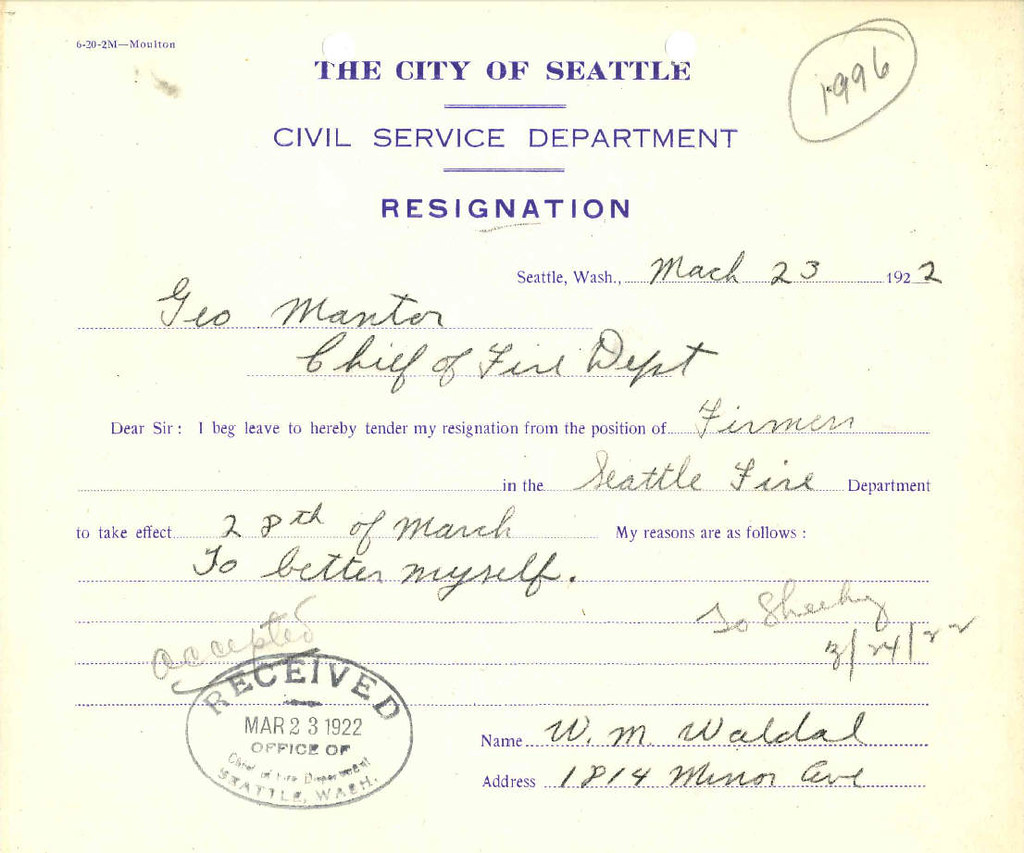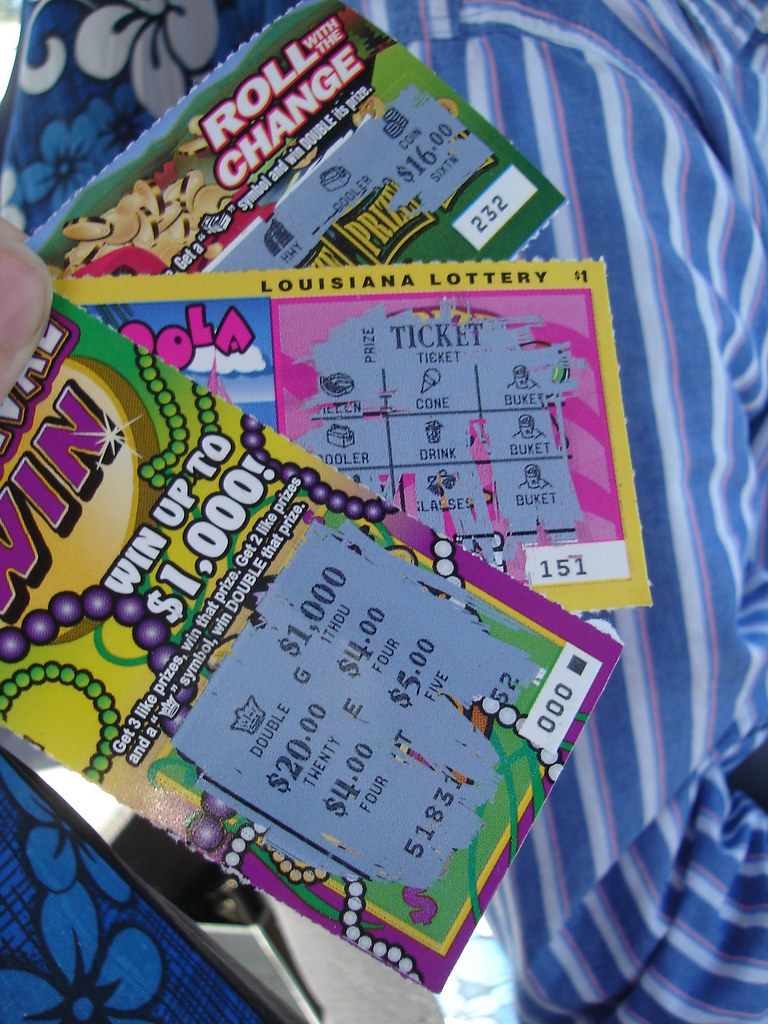
The allure of a lottery jackpot is undeniable, a dream shared by millions, promising an instant escape from financial constraints and a gateway to unimaginable luxury. Whenever these life-altering sums reach record-breaking highs, the collective imagination ignites, fueling fantasies of grand homes, exotic travels, and a life free from the daily grind. Yet, the reality for many who actually claim these colossal winnings often deviates sharply from this idyllic vision, transforming a golden opportunity into a cautionary tale of financial missteps and personal hardship.
Indeed, while most of us will never experience the sheer financial bliss that accompanies winning several million dollars, the stories of those who have are often fraught with challenges. Instead of securing lasting prosperity, a significant number of jackpot winners have struggled immensely with managing their newfound wealth, with some unfortunately losing everything. Their experiences offer invaluable, albeit often painful, lessons on the critical importance of sound financial judgment, even when faced with an abundance of resources.
This article aims to illuminate some of the most detrimental financial decisions lottery winners have made, serving as an essential guide for anyone who might one day find themselves in such a fortunate, yet precarious, position. We’ll delve into the initial pitfalls that can quickly erode a massive windfall, from misplaced trust to glaring oversights in basic financial management. By understanding these critical errors, aspiring and actual winners alike can better navigate the complex landscape of sudden wealth, ensuring their jackpot truly becomes a foundation for enduring financial well-being, not a catalyst for its collapse.

1. **Handing the Ticket Over to a Friend**The immediate aftermath of winning a substantial lottery prize can be overwhelming, often leading individuals to make decisions born of panic or misguided trust rather than sound financial planning. One such egregious error, as highlighted by the case of Jose Antonia Cua-Toc, involved entrusting a winning ticket to another party. In 2010, Mr. Cua-Toc, an undocumented immigrant, secured a winning lottery ticket in Georgia worth an impressive $750,000. Fearing potential deportation due to his status, he made the critical mistake of handing his winning ticket to his boss, Erick Cervantes, under the assumption that Cervantes would claim the prize on his behalf. This decision, though seemingly a pragmatic solution at the time, was fraught with immense risk and legal vulnerability.
This particular scenario underscores the profound importance of direct ownership and legal counsel when dealing with significant financial assets. Mr. Cervantes, unfortunately, acted as many might predict in such a high-stakes situation: he claimed the money for himself, asserting that Mr. Cua-Toc had merely purchased the ticket for him. This act of betrayal plunged Mr. Cua-Toc into a protracted legal battle, turning what should have been a moment of triumph into a period of intense stress and uncertainty. It became a stark illustration of how easily a lack of legal protection and an overreliance on informal agreements can jeopardize one’s rightful winnings.
Thankfully, justice ultimately prevailed for Mr. Cua-Toc. In 2012, after careful review of surveillance camera footage documenting the ticket’s purchase, courts ruled in his favor, affirming his ownership of the $750,000 prize. This outcome, while positive, should not overshadow the perilous journey he endured. The lesson here is unequivocal: always claim your lottery winnings yourself. Furthermore, immediately investing in competent legal representation is not an extravagance but a fundamental necessity. A qualified attorney can provide the necessary guidance to navigate the claims process securely, establish appropriate trusts, and protect your identity and assets from potential exploitation, ensuring that such a scenario is avoided altogether.
Read more about: Guard Your Sale: 13 Common Scams Targeting Private Car Sellers and How to Spot Them

2. **Throwing the Ticket in the Garbage**Among the more baffling yet distressingly common mistakes is the accidental discard of a winning lottery ticket. The sheer volume of daily tasks and the mundane routine of grocery shopping can lead to an oversight that has the potential to cost millions. Imagine the heart-stopping moment of realization that a life-changing sum was mere inches from being irretrievably lost to the landfill. This nightmare became a reality for Joanne and Joseph Zagmi, a couple who, after purchasing a scratch-off lottery ticket during a routine trip to the supermarket, unwittingly placed it in their grocery bag, only to later dispose of the entire bag with their household trash.
Such an error highlights a fundamental lapse in asset management, no matter how small or insignificant an item might initially seem. A lottery ticket, even before verification, is a potential bearer instrument of immense value, and its handling should reflect that. The Zagmis’ experience serves as a powerful reminder that every potential asset requires careful attention, from the moment of purchase through its final disposition. A casual approach to such a significant item can lead to catastrophic financial loss, illustrating that even seemingly minor acts of negligence can have profound consequences when high stakes are involved.
By some miraculous stroke of luck, the couple remembered their oversight before it was too late. The next day, they embarked on a frantic search, digging through the refuse in their dumpster to retrieve their winning ticket. While the context stops here, the implication is clear: they successfully recovered their million-dollar prize. This incredible retrieval underscores the sheer financial consequence of carelessness, but also, the incredible fortune of a second chance. For any lottery participant, the takeaway is critical: always verify your tickets thoroughly, secure them immediately upon purchase, and treat them with the same care you would any other valuable financial document. Implement a routine of immediate verification and secure storage to prevent such an agonizing and almost irreversible mistake.

3. **Ignoring Professional Financial Advice**One of the most profound errors lottery winners make, often early in their journey of sudden wealth, is the belief that they can navigate complex financial landscapes alone. The influx of a substantial sum of money, particularly for individuals unaccustomed to managing significant assets, introduces a myriad of intricate financial decisions that extend far beyond simple budgeting. These include investment strategies, tax implications, wealth preservation, and estate planning, all of which require specialized knowledge and experience that most individuals do not possess. Neglecting to seek professional financial advice from the outset is akin to sailing a grand yacht into uncharted, stormy waters without a seasoned captain.
Experienced financial advisors, particularly those specializing in sudden wealth management, offer an invaluable skillset. They can help a new millionaire understand the true value of their winnings (after taxes), establish realistic long-term financial goals, and create a robust plan to achieve them. This plan typically encompasses diversifying investments to mitigate risk, setting up appropriate legal structures to protect assets, and formulating strategies for sustainable income generation. Without such expert guidance, winners often succumb to impulsive decisions or fall prey to unreliable advice from less credible sources, jeopardizing their financial future before it has even properly begun.
Moreover, a competent financial advisor acts as a crucial buffer against the immediate pressures and emotional highs that often accompany a lottery win. They can help new millionaires make objective, rational decisions, shielding them from the myriad of requests, scams, and ill-conceived schemes that inevitably emerge. By providing a structured framework and disciplined approach, professional advice transforms raw cash into a carefully managed portfolio, ensuring that the jackpot provides sustained financial security rather than a brief, dazzling, and ultimately fleeting, moment of opulence. It’s an investment that pays dividends for a lifetime.
Read more about: Avoid the Pitfalls: The 14 Most Common Mistakes People Make When Installing Aftermarket Car Stereo Systems
4. **Engaging in Excessive, Impulsive Spending**Upon winning a lottery jackpot, the natural inclination for many is to indulge in immediate gratification, purchasing long-coveted luxury items, homes, or experiences. While a degree of celebratory spending is understandable, an unchecked spree of excessive, impulsive purchases stands out as a primary culprit in the rapid depletion of lottery winnings. This financial decision is characterized by a lack of thoughtful planning and an underestimation of how quickly even a massive fortune can evaporate when spent without discipline. The sudden availability of seemingly limitless funds can dismantle previous budgetary constraints and rational financial behavior.
This type of spending often manifests as acquiring multiple expensive properties, fleets of high-end vehicles, extravagant vacations, and lavish gifts for an ever-expanding circle of friends and acquaintances. Each purchase, while individually perhaps a dream come true, collectively represents a substantial drain on capital that is not being replenished or invested. The thrill of the purchase often overshadows the long-term financial implications, leading to an erosion of the principal amount that could otherwise generate a sustainable income. Without a budget or a clear understanding of the difference between assets that appreciate and liabilities that depreciate, winners effectively convert a wealth-generating opportunity into a consumption-driven expenditure cycle.
To avoid this financial pitfall, new lottery winners must cultivate financial discipline and establish a clear spending plan from the outset. Rather than allowing the emotional high to dictate decisions, a rational approach involves setting aside a defined portion for immediate enjoyment, while the vast majority is strategically allocated for investment and long-term security. Understanding that the jackpot, while large, is finite if not managed, is crucial. Prioritizing investments that grow wealth over depreciating luxury goods forms the bedrock of sustainable financial management, transforming a temporary windfall into a lasting legacy.
Read more about: Unlocking Peak Performance: The 13 Essential Supplements Recommended by Top Sports Doctors for Athletes

5. **Lending Money to Friends and Family Without Boundaries**The joy of a lottery win is often accompanied by an equally intense pressure from friends and family, many of whom may feel entitled to a share of the newfound wealth. While a desire to help loved ones is commendable, extending loans or outright gifts without clear boundaries, legal agreements, or an understanding of one’s own financial limits is a common and damaging mistake. This generosity, often driven by emotional ties, can quickly turn into a significant drain on assets, leading to both financial distress for the winner and strained personal relationships.
Without a structured approach, these requests for financial assistance can escalate rapidly, creating an unsustainable outflow of capital. Many winners find themselves in a perpetual cycle of generosity, constantly bailing out relatives or funding entrepreneurial ventures that may never materialize. Critically, these ‘loans’ are often never repaid, transforming them into de facto gifts that diminish the winner’s principal. The absence of formal loan agreements, repayment schedules, or collateral leaves the winner vulnerable, effectively converting their personal balance sheet into an open-ended ATM for their extended social circle, often without any legal recourse for recovery.
Establishing clear, firm boundaries is paramount. A strategic approach could involve setting aside a specific, finite portion of the winnings for gifts to family and friends, managed perhaps through a structured philanthropic trust. For any loans, it is imperative to treat them as formal business transactions, complete with written agreements, repayment terms, and, where appropriate, legal enforcement mechanisms. This not only protects the winner’s financial well-being but also clarifies expectations, potentially preserving relationships by eliminating ambiguity. Ultimately, protecting one’s financial future requires a firm resolve to say ‘no’ or to structure help in a financially sound manner.
Read more about: Danny Thompson: A Legacy of Innovation – The Bassist Who Redefined Folk and Jazz, and Enriched a Generation of Music

6. **Quitting Jobs Prematurely**One of the most immediate and tempting actions after a lottery win is to abruptly resign from one’s job, severing ties with the daily grind that characterized pre-lottery life. While the dream of newfound freedom from work is a powerful motivator, quitting a job prematurely, without a comprehensive financial plan in place, can be a surprisingly detrimental financial decision. This haste often overlooks the intrinsic value of a steady income stream, the benefits of continued employment, and the psychological framework that a professional routine provides, leading to unforeseen financial pressures and personal disarray.
Even with a multi-million-dollar jackpot, a steady, ongoing income from employment, particularly for those in high-paying positions, acts as a crucial supplement and stabilizer for the new wealth. It provides an additional layer of financial security, allowing the lottery winnings to be invested and grow undisturbed for a longer period. Moreover, many jobs offer valuable benefits such as health insurance, retirement contributions, and professional networks that, once lost, can become significant personal expenses or opportunities that are difficult to replace. A hasty exit can therefore inadvertently increase immediate expenses and reduce long-term financial growth potential.
A more strategic approach involves a phased transition or, for many, a continued engagement in their profession. Consulting with a financial advisor to understand how employment income integrates with investment strategies is key. A winner might choose to reduce hours, transition to a less demanding role, or even pursue a passion project with a reduced financial imperative, rather than completely abandoning their career. This allows for a more gradual adjustment to life as a millionaire, maintains a sense of purpose and routine, and crucially, provides a stable financial buffer while long-term investment strategies mature, ensuring that the professional decision aligns with enduring financial objectives.
Read more about: Jalopnik’s Ultimate Warning: 14 Trucks That Will Leave You Stranded (And Broke) On The Side Of The Road

7. **Falling Prey to Ill-Advised Investments**Beyond immediate celebratory spending, a common and critical long-term error for lottery winners is venturing into complex investment opportunities without sufficient knowledge or expert guidance. The sudden wealth can create an urgency to multiply funds quickly, often leading individuals towards speculative ventures, unproven startups, or schemes promising unrealistic, high returns. Such decisions, made without proper due diligence or the counsel of seasoned financial professionals, fundamentally misunderstand market volatility and risk, prioritizing potential rapid gains over capital preservation and stability.
These ill-advised investment choices frequently result in substantial capital losses, eroding the jackpot at a pace often quicker than outright consumption. Unlike simple purchases, a poorly chosen investment can tie up significant sums in illiquid assets or, worse, lead to outright forfeiture. Without a robust investment strategy tailored to their long-term financial goals and risk tolerance, winners become prime targets for the numerous scams and high-risk propositions that prey on individuals with newfound wealth. The emotional excitement of a lottery win can tragically impair rational financial judgment.
To safeguard their fortunes, lottery winners must approach all investment opportunities with extreme caution and an objective strategy. This necessitates the immediate and ongoing engagement of a reputable financial advisor specializing in wealth management. Such a professional can construct a diversified portfolio, emphasizing conservative growth and long-term security, ensuring that the lottery proceeds generate sustained income and appreciate, rather than diminishing through misguided, high-risk ventures.

8. **Neglecting Tax Obligations and Planning**One of the most profound and often overlooked errors lottery winners commit is the failure to adequately plan for and fulfill their significant tax obligations. A substantial lottery payout is invariably subject to federal and, in many cases, state income taxes, which can dramatically reduce the net winnings. Many winners mentally spend money that the government will ultimately claim, leading to a severe miscalculation of their actual net worth and subsequent financial distress, including penalties and interest.
Beyond the initial taxes on the lump-sum payout, new millionaires must navigate the ongoing tax implications of their increased wealth. This encompasses taxes on investment income, capital gains, and for very large sums, potential estate taxes. Without a comprehensive, proactive tax strategy developed by a qualified tax advisor, winners can find themselves constantly reacting to unforeseen tax demands rather than strategically minimizing their burden. The complexities of tax law for high-net-worth individuals require specialized expertise.
Effective tax planning is crucial for wealth preservation. Lottery winners should immediately consult with a tax attorney or Certified Public Accountant (CPA) specializing in high-net-worth taxation. This professional can advise on structuring the winnings, leveraging charitable contributions, and developing legal strategies to optimize tax efficiency, both in the short and long term. Proactive tax management is indispensable to ensure the maximum possible portion of the jackpot is retained, contributing to enduring financial security.
Read more about: The 12 Worst Financial Mistakes Professional Athletes Make After Retirement

9. **Failing to Protect Privacy and Managing Public Scrutiny**A lottery win often propels individuals, typically unprepared, into intense public scrutiny. A significant misstep is the failure to adequately protect one’s privacy, opening winners to a deluge of risks from ceaseless solicitations and scams to direct threats to personal safety. Many jurisdictions mandate public disclosure of winners’ identities, making true anonymity challenging but not impossible with strategic planning. Neglecting privacy leaves individuals vulnerable to widespread exploitation and harassment.
This vulnerability extends beyond the initial announcement. Winners frequently overshare personal details on social media or engage in overt displays of wealth, inadvertently attracting unwanted attention. The consequence is often a constant barrage of requests from distant relatives, forgotten acquaintances, and opportunistic strangers, transforming personal relationships into transactional ones. Moreover, public knowledge of significant wealth can make winners targets for fraud, theft, and even violence, fundamentally altering their sense of security and freedom.
To mitigate these profound risks, lottery winners must prioritize privacy and security from the outset. This involves exploring legal avenues for anonymous claims where allowed or establishing trusts and LLCs to manage assets, thus creating a protective layer between personal identity and wealth. Updating contact information, judiciously reviewing one’s social media footprint, and even considering a change of residence can be prudent. Investing in robust personal security and expert advice on public relations management is not an extravagance, but a critical defense for peace of mind and protecting both physical and financial well-being.
Read more about: The 14 Essential Questions to Ask Before Buying a Car: Your Comprehensive Guide to Safety and Value

10. **Poor Estate Planning and Intergenerational Wealth Transfer**For those who successfully manage to retain their lottery winnings over the long term, a critical, yet frequently overlooked, error is inadequate estate planning. Without a meticulously crafted estate plan, the wealth intended to benefit future generations can be significantly diminished by probate costs, unforeseen legal challenges, and substantial estate taxes. Many winners, especially those unaccustomed to managing considerable assets, fail to grasp the intricate process of wealth transfer and the imperative of legally defined structures for beneficiaries.
This oversight often results in a chaotic and contentious distribution of assets, fueling family disputes, protracted legal battles, and a significant portion of the inheritance being consumed by administrative and tax expenses. Absent properly executed wills, trusts, and clear directives, state laws dictate asset distribution, which may not align with the winner’s true intentions. Furthermore, a lack of planning can expose heirs to avoidable tax burdens, hindering the sustained transfer of wealth across generations and undermining the very purpose of preserving the lottery fortune.
Establishing a robust estate plan is a fundamental pillar of responsible wealth management. This entails collaborating with an experienced estate attorney to draft comprehensive wills, create various trusts (e.g., revocable living trusts, irrevocable trusts) for asset protection and tax minimization, and designate clear beneficiaries. Proactive planning empowers winners to control the how and when of their wealth distribution, safeguard assets from creditors, and ensure a smooth, tax-efficient transfer to their chosen heirs. This foresight transforms the lottery win into a lasting legacy, providing enduring financial stability for generations.

11. **Succumbing to Lifestyle Inflation and Unsustainable Spending**While initial impulsive spending (addressed in item 4) can rapidly deplete a jackpot, a more insidious long-term financial hazard is lifestyle inflation—a gradual, yet relentless, expansion of living expenses that eventually outstrips even a massive lottery win. This phenomenon isn’t about isolated extravagant purchases, but a sustained escalation of daily, monthly, and annual expenditures driven by a new, elevated perception of personal wealth. Winners often upgrade every facet of their lives—from residences and vehicles to vacations, dining, and personal services—without fully appreciating the compounding impact on their principal.
This incremental increase in discretionary spending often occurs subtly, making it challenging to identify until financial reserves are significantly depleted. What begins as a comfortable upgrade quickly becomes a new, immutable baseline, demanding ever-greater cash flow to sustain. Without a disciplined budget and a clear understanding of the difference between appreciating assets and depreciating liabilities, liquid assets can shrink rapidly. The unchecked pursuit of an increasingly luxurious lifestyle, devoid of disciplined financial planning, inevitably leads to a situation where even millions become insufficient to cover escalating costs, necessitating difficult cutbacks or drawing down the principal that should be growing.
To effectively combat lifestyle inflation, lottery winners must establish and rigorously adhere to a sustainable budget that aligns with their long-term financial goals, not merely their immediate spending capacity. Differentiating between genuine needs and wants, and consciously resisting continuous upward pressure on spending, is paramount. A disciplined approach involves investing the majority of winnings to generate passive income, and then living conservatively off a carefully determined portion of that income, allowing the principal to remain intact and grow. This proactive management ensures that the lottery win delivers genuine, lasting financial freedom, rather than becoming a treadmill of ever-increasing expenses that eventually leads back to financial precarity.
Read more about: When Riches Collide with Reality: The 12 Worst Financial Mistakes Celebrities Make with Luxury Assets
The stories of lottery winners serve as powerful parables, not just of fleeting fortune, but of the profound responsibility that accompanies sudden wealth. While the initial euphoria of a jackpot win is exhilarating, it is the strategic, disciplined, and informed management of that wealth that truly determines its lasting impact. The path to enduring financial well-being for lottery victors is paved not with impulsive indulgences, but with careful planning, expert guidance, and a steadfast commitment to preserving and growing their newfound assets. By learning from these common missteps, both immediate and long-term, aspiring and actual winners can transform a moment of luck into a lifetime of financial security and freedom. The dream, after all, isn’t just to win, but to truly *keep winning* for years to come.



